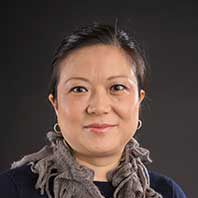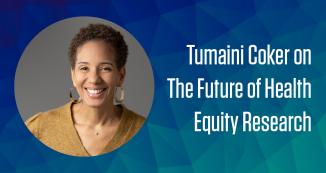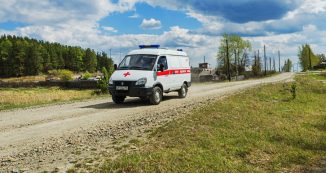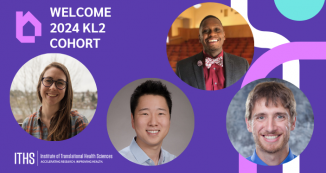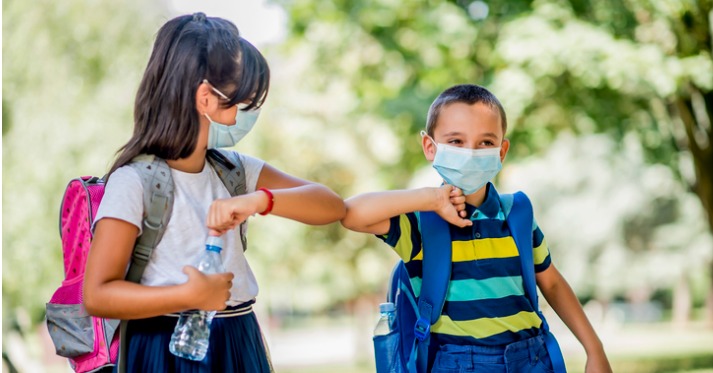
27 May Testing a Safe & Confident Return to Classrooms for Latino Youth
Last year during the height of the pandemic, Yakima Valley residents faced the highest rates of COVID-19 diagnoses and deaths in Washington state. Many in this community are Latino agricultural workers who were already experiencing health disparities before the pandemic. When Yakima Valley families had to stop sending their children to school to slow the spread of COVID-19, some Latino communities in this area lost valuable resources.
For many of these families, sending their children to school is not only a way for them to receive their primary education, but also a vital resource to fulfill basic and critical needs. For example, schools in the Yakima Valley provide children with food, emotional development and therapy, physical activity, internet access, after school programs, and much more. Safely sending kids back to school and accessing these vital resources is a high priority for these families. However, this transition will take more than just family and school planning logistics. It will take the effott an entire community to rebuild trust and ensure safety in-person attendance.
Launching a New Study: Reopening Schools Safely & Educating Youth
To address these issues, the National Institutes of Health (NIH) Rapid Acceleration of Diagnostics-Underserved Populations (RADx-UP), awarded $4 million in funding to the University of Washington and its partners, the Institute of Translational Health Sciences (ITHS) and Fred Hutch. RADx-UP is an initiative which is intended to enable access to testing within communities most effected by the pandemic.
This collaboration and funding made possible the new study: ReOpening Schools Safely and Educating Youth (ROSSEY) spearheaded by Dr. Linda Ko, University of Washington Health Promotion Research Center investigator and Co-Director of the ITHS Community Engagement Program. Dr. Ko is co-leading the ROSSEY study as Co-Principal Investigator, alongside infectious disease specialist Dr. Helen Chu in UW Medicine. The ROSSEY study is collaborating with elementary schools in the Yakima Valley community to better understand how to safely and confidently return to classrooms. The study is evaluating how effective COVID-19 testing, safety measures, and risk communications around COVID-19 can be implemented to safely increase in-person attendance.
This study launched in April 2021, recruiting participants for the clinical trial and conducting interviews and focus groups to better understand barriers and facilitators of testing for schools and families and future vaccination. “From our medical and communications experts to our partners in the community, we are working together to determine the safety of and community confidence in returning to in-person classes,” Dr. Ko said.
“As students return to classrooms, we want to see how effective COVID-19 testing, safety measures, and communication can be at reducing stress and concern around in-person learning, in addition to improving safety,” Dr. Chu shared.
From our medical and communications experts to our partners in the community, we are working together to determine the safety of and community confidence in returning to in-person classes
ITHS Collaborates with ROSSEY
ITHS Community Engagement staff is also providing overall operational and data analytics support for the ROSSEY study. Laurie Hassell, ITHS Director of Community Engagement is the ROSSEY Study Coordinator and Jenny Wool, ITHS Research Scientist, is the ROSSEY Qualitative Data Analyst. “I’m thrilled to have the opportunity to extend our work to improve COVID-19 testing to minors in underserved communities, and help teachers and students get safely back into the classroom,” Hassell said. “When schools closed, a critical lifeline was lost, and this study will establish a solid pathway to get kids safely back to the classroom.”
When schools closed, a critical lifeline was lost, and this study will establish a solid pathway to get kids safely back to the classroom.
ITHS brings additional value to this study through its various Community Engagement Program partners that are collaborating with this study. For example, the Center for American Indian and Rural Health Equity (CAIRHE) at Montana State University and ITHS Hub Liaison team have been instrumental to the success of the ROSSEY study by providing and sharing lessons learned, training and operations materials.
Community Collaborators, Study Expansion & Impact
The ROSSEY team is also working closely with a school district in the Yakima Valley to conduct a pilot study this spring and develop and implement a protocol for schools in the summer. This coming fall, this effort will expand to a larger trial of approximately 16 schools and 900 kindergarten through eighth grade students across multiple school districts. Along with COVID-19 testing, researchers will collect data about student absences and assess physical activity and stress among students, staff, and families. Study materials and communications will be culturally appropriate and provided in Spanish and English.
Ultimately, the study team will produce a manual for schools to help mitigate concerns and improve safety while returning to the classroom. This study may also contribute to vaccination efforts as vaccines become available for younger children.
The ROSSEY study also includes guidance and feedback from six members of a Community Advisory Board who have partnered with Dr. Ko on multiple community-based participatory research projects. Sonia Bishop is a Program Manager at Fred Hutch and the ITHS Community Engagement Program. She is co-leading the Community Engagement effort with Dr. Ko and the Community Advisory Board.
The board includes school district employees and partners, as well as influential community members like Sandra Linde who is a chaplain of Astría Hospital and a Sunnyside School District board member and one of the community’s researchers. “We want our students and staff to be safe,” she said. “Expanding the great partnership we have had with Dr. Ko and her team will give us the ability to learn how to do this together as a community.”
Expanding the great partnership we have had with Dr. Ko and her team will give us the ability to learn how to do this together as a community
Oralia Cisneros, another community researcher and a paraprofessional at the Granger School District and long-term Community Advisory Board member, echoed the same need to work together with local partners and UW collaborators. “Returning to in-person school continues to be of great concern for many people in the Yakima Valley, including myself,” Cisneros said. “I feel a sense of peace knowing that the University of Washington and its partners are working with some of our schools to evaluate how we can safely continue to increase attendance.”
I feel a sense of peace knowing that the University of Washington and its partners are working with some of our schools to evaluate how we can safely continue to increase attendance
Learn more about RADx-UP initiatives that are supporting the safe return to in-person school.
For questions regarding the ROSSEY study, please reach out to Laurie Hassell at lhassell@uw.edu.
This research was, in part, funded by the National Institutes of Health (NIH) agreement number 1 OT2 HD107544-01. The views and conclusions contained in this document are those of the authors and should not be interpreted as representing the official policies, either expressed or implied, of the NIH.




